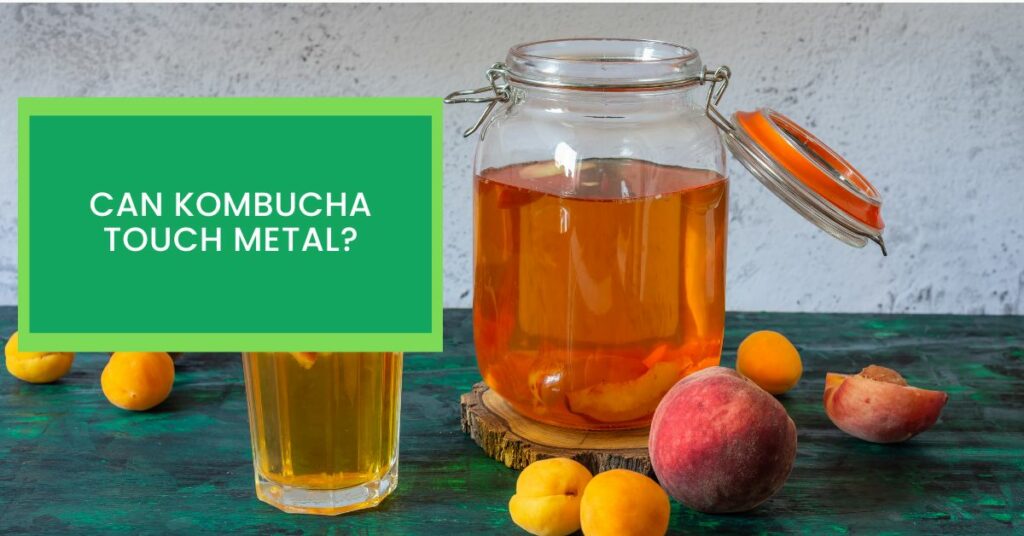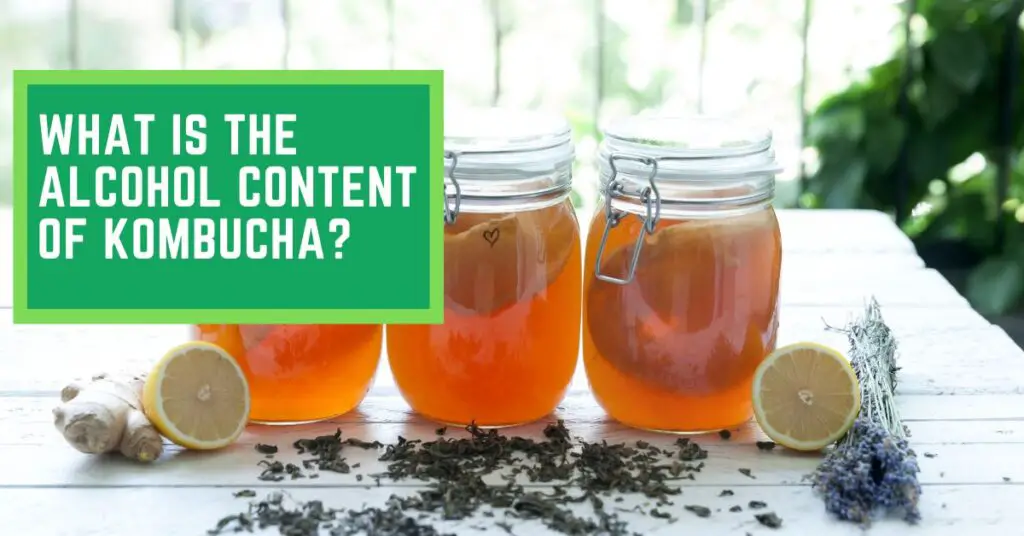Kombucha is a fermented tea that has been around for centuries. It is made by adding a special type of bacteria and yeast to sweetened tea. This fermentation process produces carbon dioxide and alcohol. Most people wonder whether kombucha touches metal.
Kombucha generally comes into contact with metal during the brewing process when the kombucha is fermenting in a metal container.
In this article, we’ll discuss whether kombucha can touch metal and, if so, what kind of reaction it may have.
What is Kombucha?
Kombucha is a fermented tea that has been enjoyed for centuries. It is made by combining tea, sugar, water, and a culture of bacteria and yeast.
This fermentation process creates beneficial probiotics and enzymes that are good for gut health. Kombucha has a slightly sour, effervescent taste and is rich in vitamins, minerals, and antioxidants.
Health benefits of kombucha include improved digestion, increased energy, and detoxification. Kombucha can be enjoyed on its own or used as a mixer in cocktails and mocktails.
How Does Kombucha Touch Metal?
The answer is rather simple. Kombucha comes into contact with metal when it is brewed in a metal container. This can happen with both stainless steel and copper kettles.
Some brewers also use aluminium pots. While brewing, kombucha will react with the metal and cause a chemical reaction. This reaction can change the taste of the kombucha and make it more acidic. It can also cause the kombucha to become cloudy.
Metal kettles should be avoided if you are looking to brew kombucha with a consistent taste. If you do use a metal kettle, it is important to clean it well after each use. This will help to prevent the build-up of metals in the kombucha and make it safer to drink.
If you are looking for a kombucha brewing container that does not touch metal, you can use a glass or ceramic vessel. These materials will not react with the kombucha and will not change the taste of the finished product.
The Best Type of Containers to Store Kombucha
The type of container you use to store your kombucha can affect the taste and quality of the finished product.
Glass is the best type of container to use because it is non-porous and doesn’t absorb flavours. Stainless steel is also a good option, but make sure to avoid containers made with aluminium or plastic, as these can leach chemicals into the kombucha.
When choosing a container to store your kombucha, make sure it is clean and sterilized. You can do this by boiling the container in water for 5 minutes. The container should also have a tight-fitting lid to prevent oxygen from getting in and damaging the SCOBY.
Once your kombucha is brewed, transfer it to the container you will be storing it in and seal it tightly. Store the kombucha in a cool, dark place until you’re ready to drink it. When you’re ready to drink it, simply open the lid and enjoy!
What if You Store Your Kombucha in a Metal Container?
Storing kombucha in a metal container is not recommended because metal can react with the acidity of the kombucha and leach into the drink.
This can give the kombucha a metallic taste and can also be harmful if consumed in large quantities.
If you must store kombucha in a metal container, make sure to use a food-grade stainless steel container and avoid contact between the kombucha and the metal surface.
Can You Put Kombucha in Stainless Steel?
One of the most important things to know when making kombucha is what type of container to use. Some people prefer to use glass, while others like to use stainless steel.
So, can you put kombucha in stainless steel? The answer is yes, but there are a few things to keep in mind. Stainless steel is a non-reactive metal, which means it won’t interact with the kombucha like other metals (such as copper or iron) can.
This is important because it means that your kombucha won’t pick up any unwanted flavours from the stainless steel.
However, there are a few downsides to using stainless steel for kombucha. One is that it can be more difficult to clean than glass. Stainless steel also doesn’t allow light to pass through, so your kombucha may not get the same level of fermentation as it would in a glass container.
Overall, stainless steel is a fine option for storing and fermenting kombucha. Just be sure to keep an eye on it and give it a good cleaning every now and then.
Can You Stir Kombucha With a Metal Spoon?
The answer to this question is a bit more complicated than you might think. While it is technically possible to stir kombucha with a metal spoon, it’s not something that we would recommend.
This is because metal can react with the acidity of the kombucha and leach into the drink.
If you must stir kombucha with a metal spoon, make sure to use a food-grade stainless steel spoon and avoid contact between the kombucha and the metal surface.
Frequently Asked Questions Related to The Contact of Kombucha With Metal
1. Can I use a metal lid for kombucha?
Metal lids are not recommended because they can corrode and contaminate the kombucha.
A better option is to use a plastic lid that has been washed and sanitized. You can also buy special caps for kombucha brewing that are made of non-metallic materials.
2. Why does my kombucha taste metallic?
There are a few possible reasons why your kombucha might taste metallic.
One possibility is that you’re using too much metal in the brewing process. Kombucha should be brewed in a glass or ceramic vessel, not metal.
If you’re using a metal SCOBY (symbiotic colony of bacteria and yeast) or eating utensils, that could also be the issue.
Another possibility is that your kombucha contains excessive levels of iron.
This can happen if you’re using tap water that hasn’t been filtered or if you’re using black tea instead of green tea (black tea leaves are higher in iron than green tea leaves).
You can try switching to filtered water and/or green tea to see if that helps.
3. Can kombucha touch plastic?
Yes, kombucha can touch plastic, but it’s not recommended. Kombucha is a living drink, and the plastic may contain chemicals that can leach into the kombucha and contaminate it.
Also, the plastic could harbour bacteria or mould that could contaminate the kombucha.
If you do use plastic to store or transport kombucha, make sure it’s food-grade and clean. Glass is a better option if possible.





